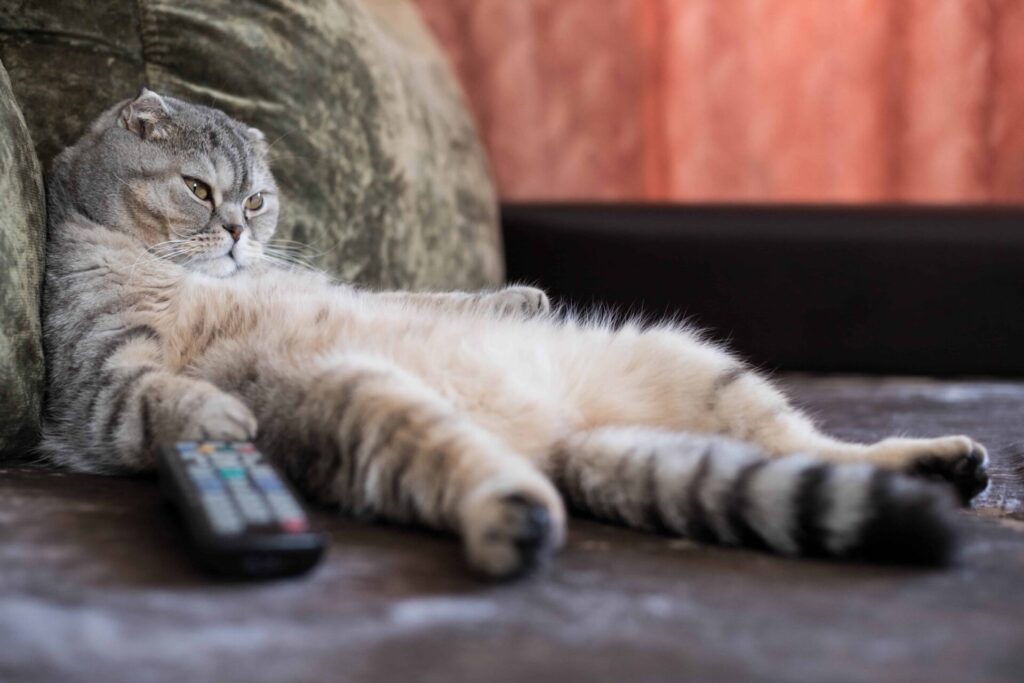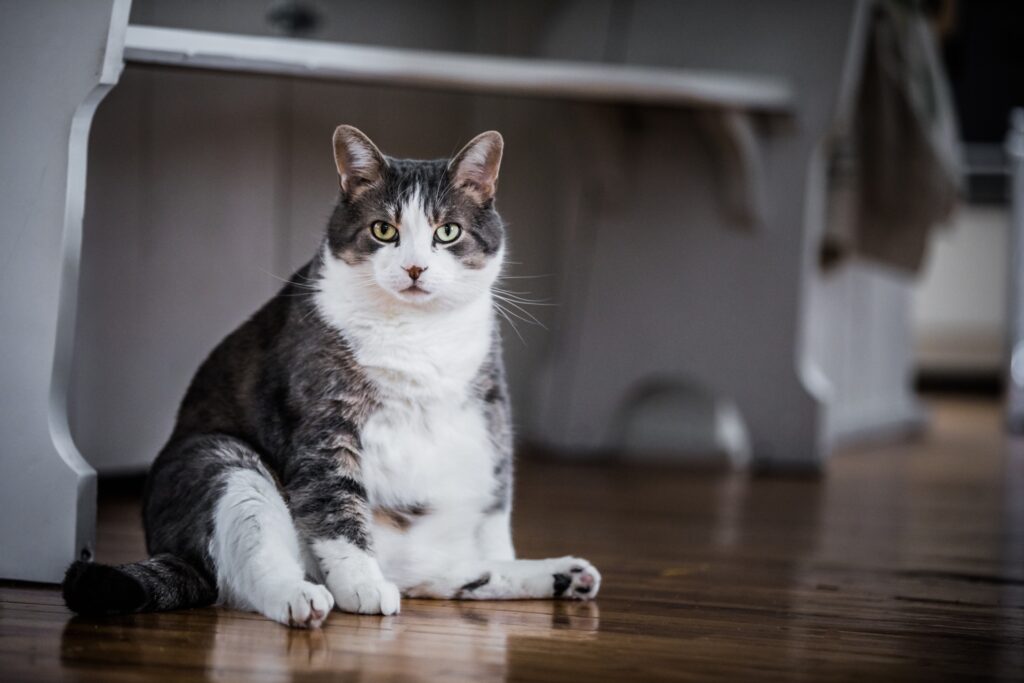
We all love to give our pets the occasional treat, but when that turns from occasional to regular they start having problems. Like humans, cats and other pets can get overweight. Since they can’t realize that for themselves and go to the gym, it’s important for you, their owner, to see the signs before they become an obese cat.
Here are a few of the major signs to watch for.
Do You Have an Obese Cat? Check Their Rib Cage
Like humans, excess weight will often sit on a cat’s chest. To check if your cat is overweight, inspect their rib cage. If they have more padding on their chest than the back of your hand, they may be overweight. If you can’t feel their ribs at all, it’s highly likely your cat is actually obese and needs medical attention.
You can also look at your cat from the side while they are walking. A lean cat should have a stomach that slopes upwards from the ribcage to the back legs, rather than sporting a tummy pouch. While older cats will likely have a little sag in their stomach areas, they shouldn’t have a distinctly round stomach.
How Being Overweight or Obese Affects Your Cat
We suffer from health conditions when we’re overweight and so do cats. In the case of your pet, they can get skin problems and urinary tract infections from not playing or grooming themselves. Plus, excess weight can also cause them to be anxious and depressed.
Cats are also more prone to diseases in general (especially diabetes, arthritis, and joint pain) when they’re overweight.

How Can Cats Become Obese?
As you might already expect, cats can become overweight by overfeeding them, often in combination with not getting enough exercise. It’s not always easy to notice that your pet is gaining weight faster, especially as they get older and their metabolism slows down. Older cats have different nutritional needs and recognizing that early on can ensure your pet lives a happy life.
How to Help Your Cat Lose Weight
Make sure to take your cat to the vet first to confirm it’s not another issue that’s causing them to gain weight. Once your cat has been clear or properly diagnosed, you need to keep them on a strict meal plan with healthy food to help nurse them back to a healthy weight.
This doesn’t mean your pet needs to go on a diet. They simply need regular meals portioned properly to help them gradually lose weight.
Supplementing their new food and meal plan, they also need regular exercise. While cats don’t need as much exercise as dogs to stay in shape, they do need roughly 2 sessions of about 15 minutes of play per day where they need to be chasing or leaping after their toy to get exercise. If you get a cat tree to complement their “workout” this is even better for them.
While your cat may be overweight or even obese, with timely treatment, they can get back to being their healthy active selves in no time.
